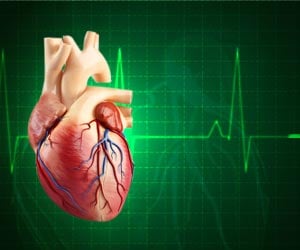According to a study, among patients with heart failure with preserved ejection fraction, long-term treatment with the medication spironolactone improved left ventricular diastolic function.

Frank Edelmann, M.D., of the University of Gottingen, Germany, and colleagues conducted a study to examine the long-term effects of spironolactone, an aldosterone receptor blocker, on diastolic function and exercise capacity in patients with HF with preserved EF. The Aldo-DHF trial, a randomized, placebo-controlled trial, was conducted between March 2007 and April 2012 at 10 sites in Germany and Austria. The study included 422 patients (average age, 67 years) with chronic New York Heart Association class II or III heart failure, preserved left ventricular ejection fraction of 50 percent or greater, and evidence of diastolic dysfunction. Patients were randomly assigned to receive 25 mg of spironolactone once daily (n = 213) or matching placebo (n = 209) with 12 months of follow-up. The primary outcomes measured were changes in diastolic function (E/e'') on echocardiography and maximal exercise capacity (peak VO2) on cardiopulmonary exercise testing.
The researchers found that spironolactone improved some measures (left ventricular end-diastolic filling, left ventricular remodeling, and neurohumoral activation). Maximal exercise capacity did not significantly change with spironolactone vs. placebo, and spironolactone did not improve heart failure symptoms or quality of life and slightly reduced 6-minute walking distance. "Spironolactone also modestly increased serum potassium levels and decreased estimated glomerular filtration rate without affecting hospitalizations."
The authors conclude that the "lack of accepted minimal clinically important differences in E/e'' or peak VO2 in HF with preserved EF warrants additional prospective, randomized, adequately powered studies to further evaluate the effect of improving diastolic function on symptomatic, functional, and clinical end points."
(JAMA. 2013;309(8):781-791; Available pre-embargo to the media at http://media.jamanetwork.com)
Editor''s Note: Please see the article for additional information, including other authors, author contributions and affiliations, financial disclosures, funding and support, etc.
Editorial: Defining Diastolic Heart Failure and Identifying Effective Therapies
"In the meantime, MRAs appear useful for managing congestion and preventing diuretic-induced hypokalemia [abnormally low level of potassium in the circulating blood] with the attendant risk of sudden arrhythmic death. It is likely that these benefits are independent of cardiac phenotype but might be more prominent in those with impaired aldosterone degradation due to hepatic congestion. Whether MRAs exert important benefits for patients with HFpEF through other mechanisms such as reducing fibrosis, inflammation, and adrenergic activity may take longer to unravel."
 MEDINDIA
MEDINDIA




 Email
Email










